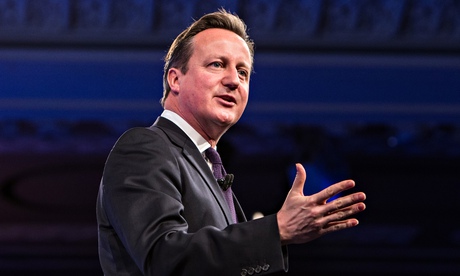Downing Street and the intelligence services have been coy when asked for a breakdown of the 70,000 moderate Syrian fighters cited by David Cameron as a force on the ground to defeat Islamic State.
So far no breakdown has been forthcoming. Given that it is a key part of Cameron’s argument for extending UK airstrikes to Syria – one identified by MPs as a central weakness in the prime minister’s case – there is pressure on Downing Street and the joint intelligence committee, the umbrella group for the agencies, to provide an answer.
Cameron was specific: “Although the situation on the ground is complex, our assessment is that there are around 70,000 Syrian opposition fighters on the ground who do not belong to extremist groups.”
A force on the ground is needed to defeat, rather than just contain, Isis. So who are these Syrian fighters that Cameron is relying on?
There are an estimated 60,000-70,000 “moderate” opposition fighters in Syria. The problem is that they are not a united force. And so far they have not shown much interest in focusing on Isis – as Cameron would like them to – being too preoccupied fighting Bashar al-Assad’s Syrian army.
There are at least 100-120 different groups, with various aims, and differing in size from thousands to just 100-200 members. They are splintered, with some limited to a narrow geographical area. And some are far from moderate, sharing the ideology of al-Qaida.
The fragmented nature of the opposition is reflected in an assessment by Charles Lister, author of The Syrian Jihad: Al-Qaeda, the Islamic State and the Evolution of an Insurgency.
Among the various groups, he listed: Southern Front (58 factions), 25,000 strong; Northern Free Syrian Army (14 factions), 20,000; Tajamu Fastaqm Kama Umrat, 1,000; Thuwar al-Sham, 1,000; Jabhat al-Asala wal Tanmiya, 5,000; al-Jabhat al-Shamiya, 2,500; Kataib Nour al-Din al-Zinki, 1,500; Faylaq al-Rahman, 2,000; Faylaq al-Sham 4,000; al-Ittihad al-Islami Ajnad al-Sham, 3,000.
Lister, who is a visiting fellow at the Brookings Doha Centre and who has met many of the rebel groups face to face, said that in theory there is a 70,000-strong anti-Isis force. “In reality, they will not dedicate all their forces to fighting Isil [Islamic State]. They will not suddenly overnight become British tools to fight Isil as long as they are still having to fight Assad.”
He added the rebels’ supporters among the general population would not “allow them to leave the battlefield [against Assad] to do the west’s bidding”.
Ghadi Sary, a Syria specialist at the Chatham House thinktank, said the idea that there was a force of 70,000 waiting to take Raqqa was an oversimplification. “The maths is correct but it has been taken out of context with regard to Raqqa. There are at any point 70,000 people, but that number does not take account of geography or whether they are logistically capable of mounting an attack on Raqqa or the internal dynamics,” Sary said.
A potential force that could mount an attack on Raqqa is the Democratic Forces of Syria, a combination of the Kurdish People’s Protection Units (YPG) militia and some Syrian Arab groups that had fought Isis earlier this year, Sary said. He was reluctant to put a figure on the size of the force but estimated it at about 5,000-10,000.
“It was oversimplified when it was said that 70,000 were waiting. It would have been better to say there are 70,000 opposed to Assad who are not radical. The idea that they would take Raqqa is overstretching it.”
The problem is that the Kurds are not interested in fighting much beyond their immediate spheres of interest, which are mainly Kurdish population centres, and are not planning to take Raqqa. So that is tens of thousands of fighters from the YPG taken out of the equation.
There are other non-Isis groups, such as Jabhat al-Nusra, but the latter does not qualify as moderate as it is al-Qaida’s affiliate in Syria.











